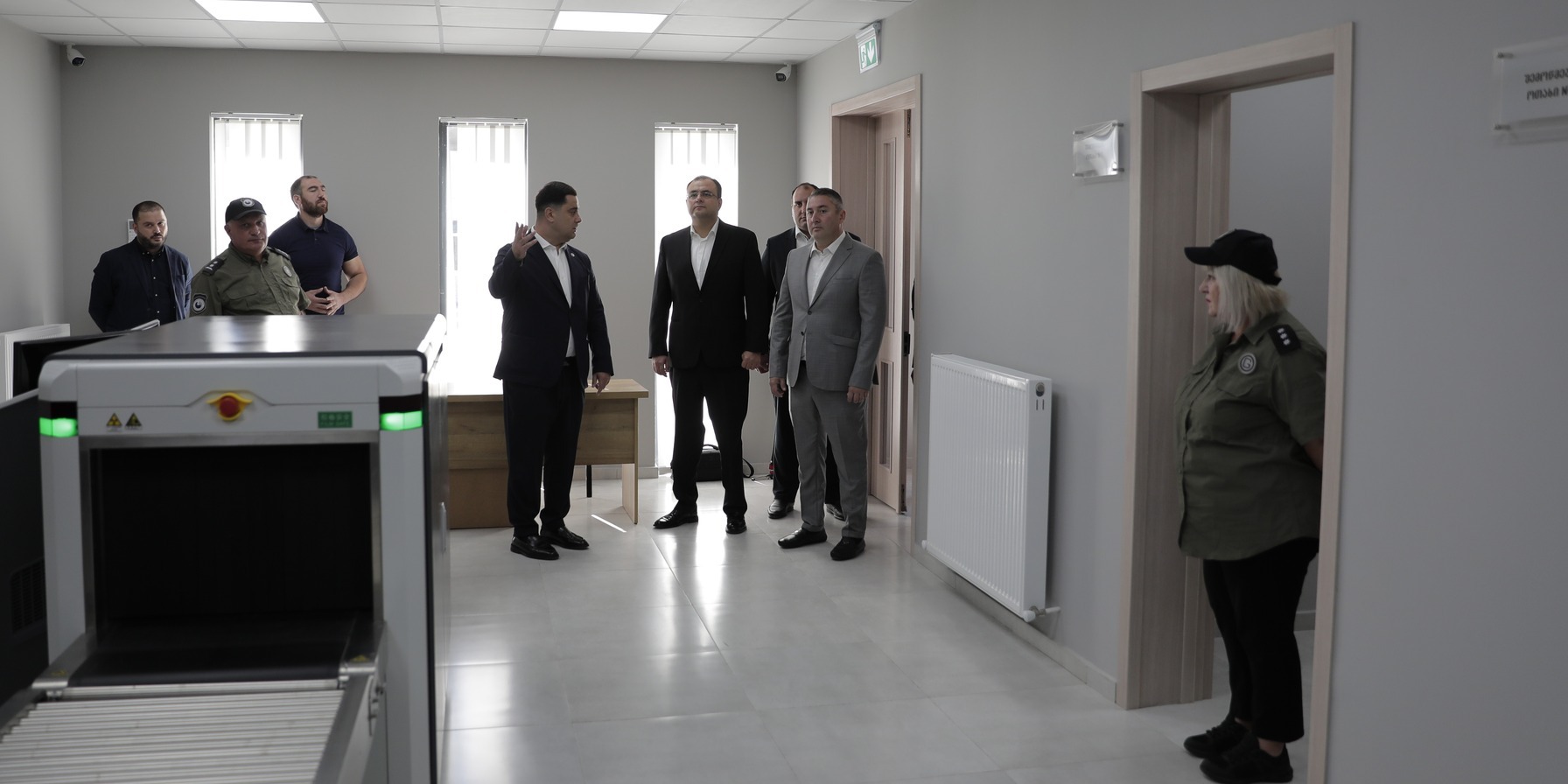News

Ministry of Justice Advances Key Infrastructure Projects in the Penitentiary System
As part of ongoing efforts to enhance the rights and services available to convicts and staff, Minister of Justice Rati Bregadze inaugurated new facilities at Penitentiary No. 10 in Ksani.
The newly built infrastructure includes a Public Service Hall, dedicated meeting rooms for lawyers, spaces for both long- and short-term visits, and a video conferencing area.
This upgrade ensures that both inmates and staff can fully access state and private sector services within the institution. The Ksani facility is the sixth penitentiary to feature a Public Service Hall, a project that is unparalleled worldwide.
Convicts at Penitentiary No. 10 will now benefit from improved, comfortable meeting spaces, equipped with the necessary amenities for both long and short visits. The infrastructure aligns with the 2024 Penal Code, which permits inmates to use these meeting spaces free of charge.
Additionally, a new, state-of-the-art storage facility has been installed to better control the introduction of prohibited items. Access to the institution is now further secured with the installation of a modern scanner and a designated room for the physical inspection of visitors.
The inauguration was attended by Deputy Minister of Justice Erekle Gvinianidze, Head of the Special Penitentiary Service Nika Tshvarashvili, and Chairperson of the Public Service Hall Lasha Lobjanidze.
 Geo
Geo Eng
Eng